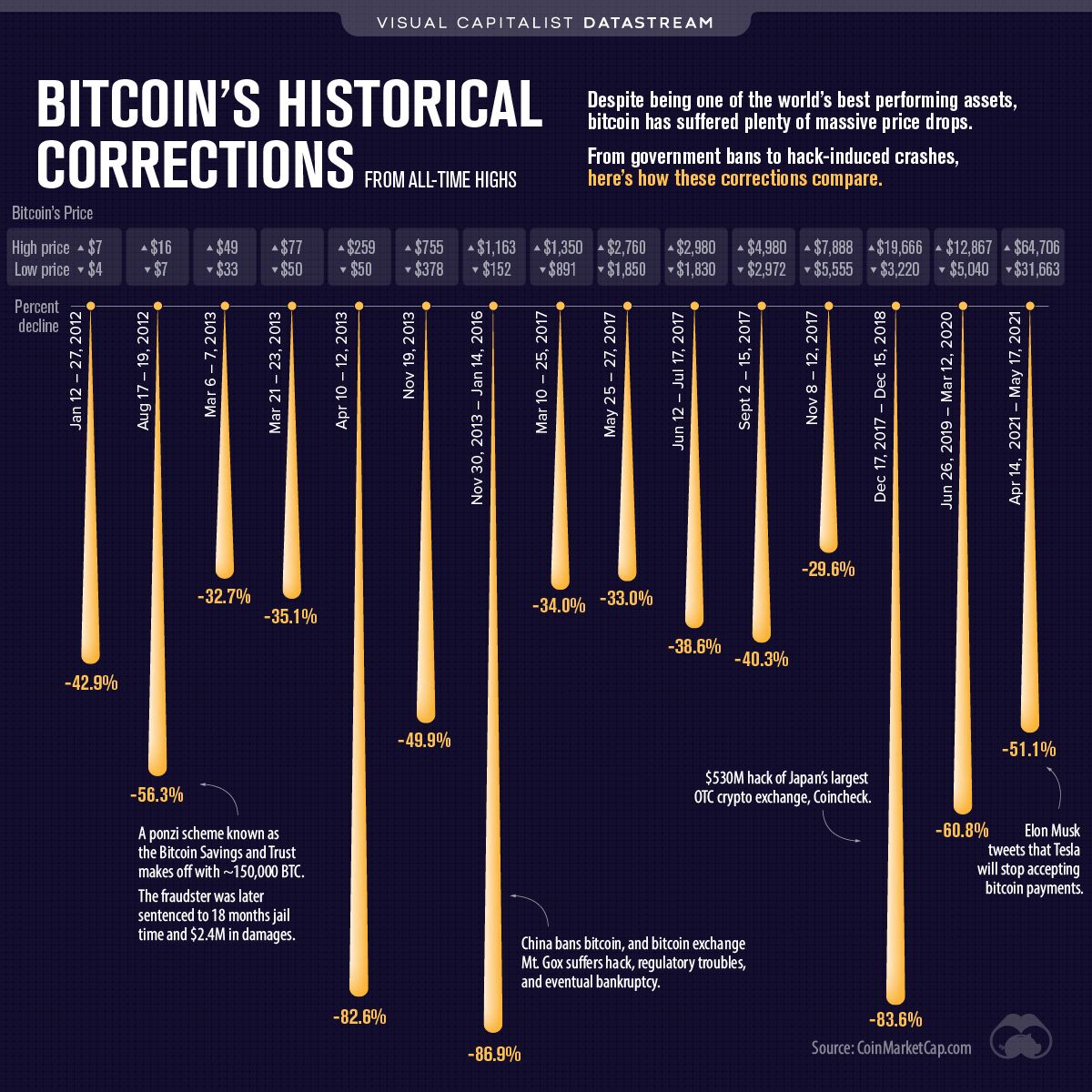The Coming Tax Grab
Our government are desperate for more of your money so they can give more to their pet policy areas.
There's a great deal of money to be made (and power to be gained) by fuelling alarmism. Some organisations seem to specialise in it.

Our recent crypto currency post couldn't have been better timed.
All those discussed have had excellent gains as the crypto market bounces from its recent correction. Many doomsayers will call every fall in crypto prices the beginning of the end, but those familiar with the volatility of cryptocurrencies will take it in their stride.
Look at the graphic below, which captures Bitcoin's history of price corrections.

Volatility is simply the price for the outsized returns that have been generated over time.
Understanding cryptocurrency and the importance of blockchain and smart contracts is the key to understanding the future.
I believe almost everything will become decentralised - from finance to insurance. Decentralisation will extend outside of the digital realm too.
I can see a return to 'localisation' where people will choose goods and services created closer to home. Some will do it for environmental reasons, and others for patriotic purposes.
Whatever the cause, buying locally is one expectation I have for the future.
You see, the COVID madness really has changed everything. The thinking person now understands that the government can do almost anything it wants with little pushback from citizens.
We have also seen how fragile the global supply chains and veneer of civilisation are.
When people are fighting over toilet paper, you know everything is on the edge.
Governments and other non-government bodies hate decentralisation. It means they lose control and power, so they do whatever they can to retain authority.
The most recent example is that Bitcoin (or other cryptocurrencies) will disappear simply because the price has dropped. It's natural for the government to feel that way as they don't want a financial system they cannot control.
It also means playing up societal problems as potentially the end of the world as we know it.
It's a strange coincidence that just months (October 2019)before the pandemic was declared, some organisations like the World Economic Forum (WEF) conducted a Live Simulation Exercise to Prepare Public and Private Leaders for Pandemic Response.
Now, these same groups are conducting a new simulation over a cyber attack that will shut down the world economy.
Imagine how quickly society would disintegrate if electricity, water, fuel and other essentials were shut down due to a cyber attack. We'd have a new collective enemy to unite against while we rely on government to save us all.
Once again, the WEF is making the case that this is a global threat and a "major obstacle in our path to progress". Naturally, it requires a global response, which the WEF is prepared to lead.
Every problem identified by big bureaucracy seems to require the global centralisation of power and decision-making. This latest simulation neatly fits with their Great Reset agenda.
Only time will tell if their concerns over a cyber attack that shuts the world will prove as prescient as their pandemic simulation.
If it does, I suspect it would open up a raft of questions as to just how contrived the weapons of mass hysteria may be.